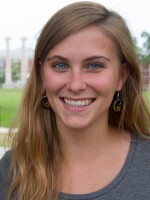Americans are living longer, and in most cases, that comes with more healthcare costs, especially at the end of life. In a study this year, researchers at the University of Missouri found more Americans are preparing for the end of life through conversations and legal documents, and are reducing health care costs along the way.
Every two years since 1992, the Health and Retirement Study has collected information about health, income and healthcare costs on 20,000 Americans over the age of 50 to find out how they transition into later life.
MU Assistant Professor of Health Sciences Nidhi Khosla and her research team used data from the study to examine which populations are participating in end of life planning.
Khosla said they took a broad view of what end of life planning entails, including "informal conversations with family and friends, living wills and durable power of attorney."
Across the board, Khosla said, their study shows more Americans are planning for the end of life regardless of socioeconomic status, race or education.
But socioeconomic status influenced one area of planning: durable power of attorney, or choosing someone to make health care choices for a patient if they are unable or incapacitated.
"We found that higher household income increases the odds of having a durable power of attorney for health care," Kholsa said.
MU Assistant Professor of Family and Community Medicine Karla Washington said this gap is caused by one big misconception.
"Advanced Care planning is not something that requires an attorney," she said. "It's something you can do with information freely available online."
In Missouri, the Office of the Attorney General provides a free document called "Life Choices" to guide patients through the process of filling out an advanced directive. This end of life document specifies what life-saving procedures a patient wants, doesn't want and provides an option to designate durable power of attorney for health care.
Putting together an advanced directive isn't expensive, either. Professor Khosla points out, it's possible for these documents to help save money.
"Especially when a lot of care at the end of life is expensive and unwanted," Khosla said.
75 percent of health care spending comes form managing chronic diseases in the last two years of life, according to the Dartmouth Atlas of Healthcare.
Having an advanced directive can limit those costs. In Lacrosse, Wisconsin, for example, 96 percent of residents have an advanced care directive. Medicare spending there for the last two years of life is the lowest in the nation.
Beyond the forms and the cost of care, Washington said it's important to have conversations about the end of life, so doctors, family and friends understand a patient’s values.
"It's really impossible for a form to encapsulate all of the different scenarios that could occur at the end of life," Washington said.
Missouri's "Life Choices" document helps patients think about the end of their life with questions like "How would you like to be remembered?" and "What would you like the last week of your life to be like?"
Those can be uncomfortable to answer, but having that conversation early, with health care providers and family can make the end of life a little more manageable.



